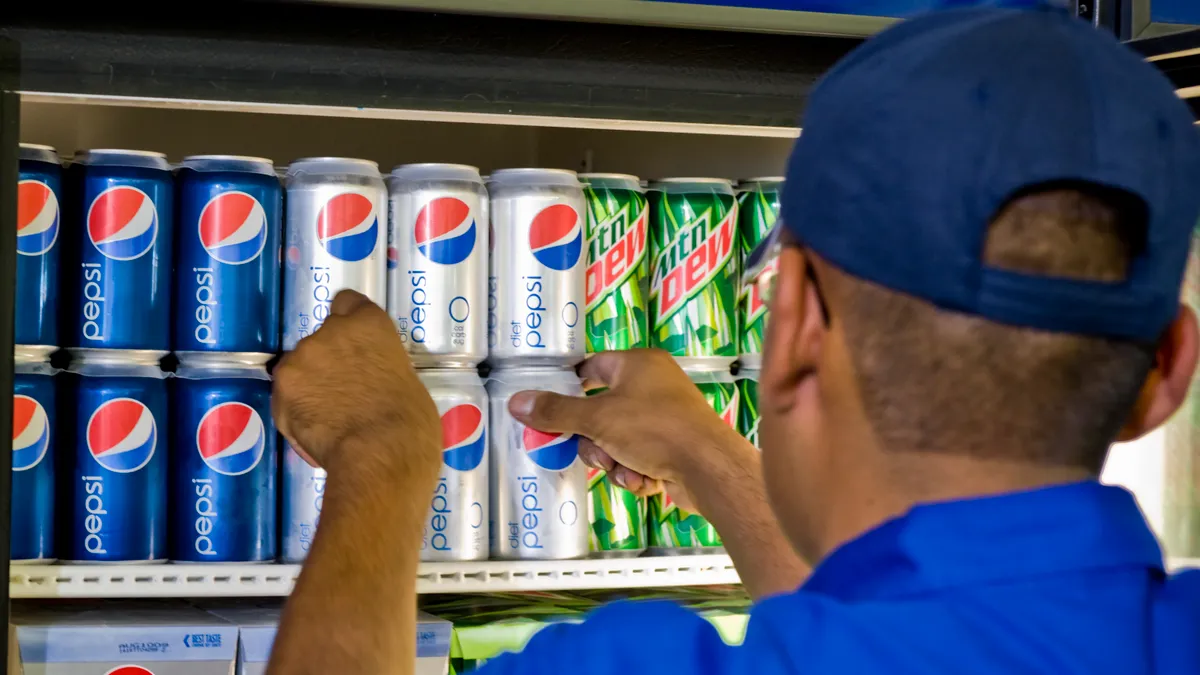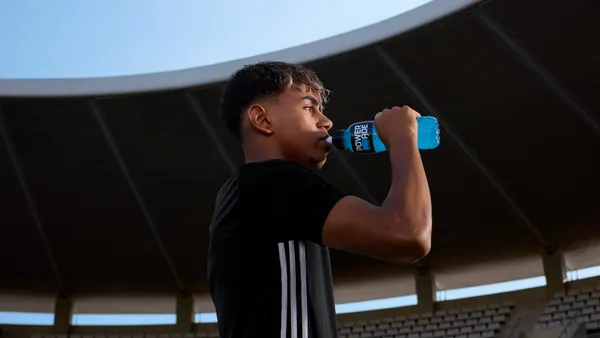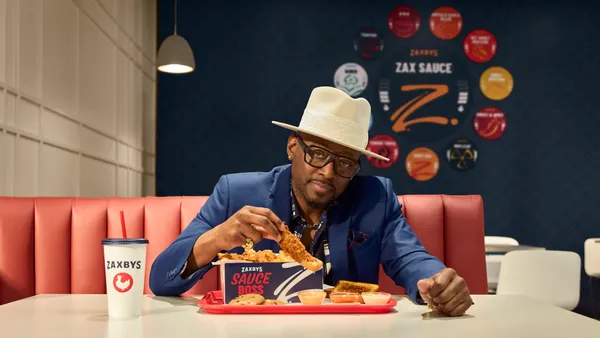PepsiCo has sped up shifting marketing investments away from linear media and toward streaming and digital platforms as the coronavirus pandemic wears on, executives said during a livestreamed discussion at Advertising Week. It's not a particularly surprising pivot: Cord-cutting, having picked up steam for years, exploded in recent months as consumers became homebound by the health crisis, presenting an opportunity for brands that have had to quickly move more of their operations online.
"We recognize how much of a shift we've seen and an acceleration that we've seen in streaming viewership over the past few months, especially in light of COVID," Kate Brady, PepsiCo's head of media innovation and partnership development, said during the panel, which also featured a representative from the agency Spark Foundry.
"What we've seen is a rapid acceleration in our shift in investment away from traditional linear to more streaming, digitally native platforms," Brady said.
The company behind food and beverage brands like Gatorade, Mountain Dew and Tostitos has previously shown an affinity for streaming during the health crisis, but comments offered at Advertising Week on Wednesday indicate its emphasis on traditional media could be significantly diminished in the future, or at least for the key holiday sales period.
Audience isn't the only factor driving the change. As personalization, localization and addressability climb in importance for PepsiCo, Brady suggested that digital channels are better-suited to deliver results compared to traditional media. PepsiCo has recently run pilots with Roku, the smart TV provider that moderated the panel, and works with a variety of digital startups through its PepsiCo Labs venture arm.
"With that [shift toward digital], we're really excited to see how much more addressable we can be in the way that we're targeting our consumers [and] how much more we can leverage the data that we have in our arsenal to be more prescriptive with the messaging that we're delivering to our audiences," Brady said.
Path forward
Some analysts believe linear TV will never recover from the impact of COVID-19, a grim forecast that's been reinforced by postponements and cancellations for the lingering number of destination viewing events, including live sports. PepsiCo still has some high-dollar investments in the space: Pepsi, its top soft drink label, is a major sponsor of the NFL and rolled out an extensive TV advertising campaign around the league's return in September.
"Leveraging digital channels allows us to be much more personalized at the scale that we need."

Kate Brady
PepsiCo, head of media innovation and partnership development
But Brady's comments highlighted other areas where streaming could have an advantage in the long run, such as a growing need for personalization and localized marketing strategies. Both tactics have become important for PepsiCo as the U.S. economy weathers a patchwork reopening and faces the threat of further disruptions come winter. Foodservice is a major part of the organization's business, meaning PepsiCo has to get more granular in how it communicates with both its restaurant partners and consumers.
"We recognize that regions are opening up on different timetables through COVID," Brady said. "There's different messaging that we have to have.
"Leveraging digital channels allows us to be much more personalized at the scale that we need in those local divisions and have that really prescriptive message that fits that need-state of that consumer," she added. "That's really the ideal scenario we're looking for."
PepsiCo isn't alone in pursuing a more digital-centric path forward. Coca-Cola, which largely froze its marketing spend at the outset of the pandemic, has prioritized flexibility in turning the communications taps back on. Streaming and digital media allow for more wiggle room compared to traditional because they lack the focus on high-dollar upfront commitments that are set months ahead of time.
"[Digital] has been very much able to, immediately and in real time, reach our consumers in many different forms … and some of them really astonished me," Barbara Sala, Coke's strategic connection and media director for Central and Eastern Europe, said at a conference in the spring.
The spotlight on streaming comes as packaged food companies establish bigger digital sales footprints as well. PepsiCo earlier this year launched two direct-to-consumer sites to capitalize in the uptick in at-home snacking and consumer preference for e-commerce. Last week, the company reported net sales grew 5.3% in Q3, bolstered by the snacking category and continued interest in pantry foods like pancake mix and pasta.















